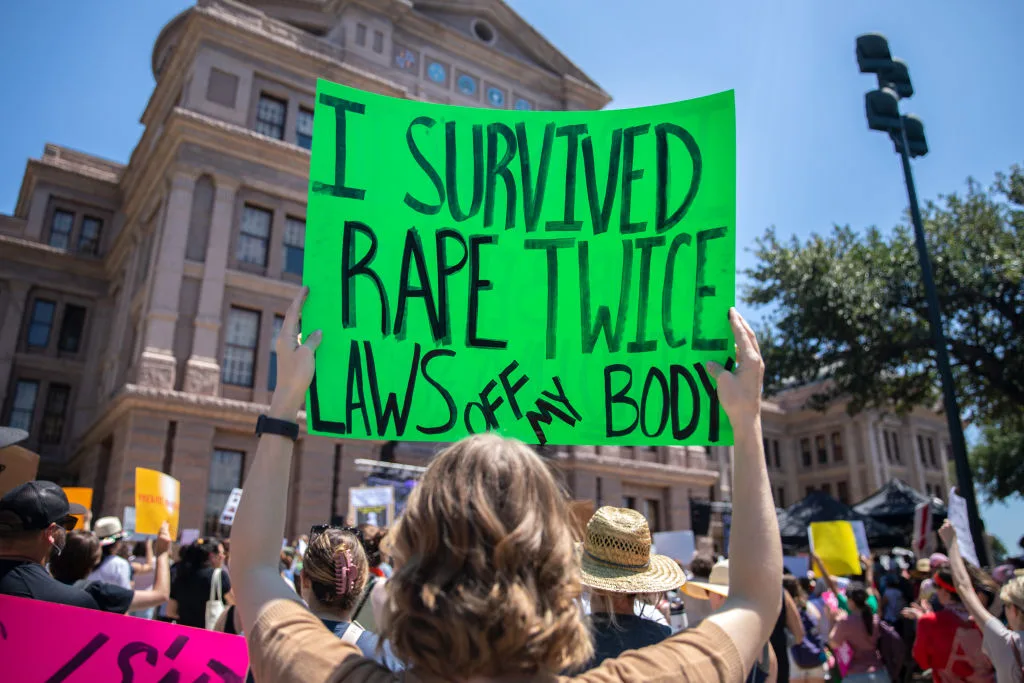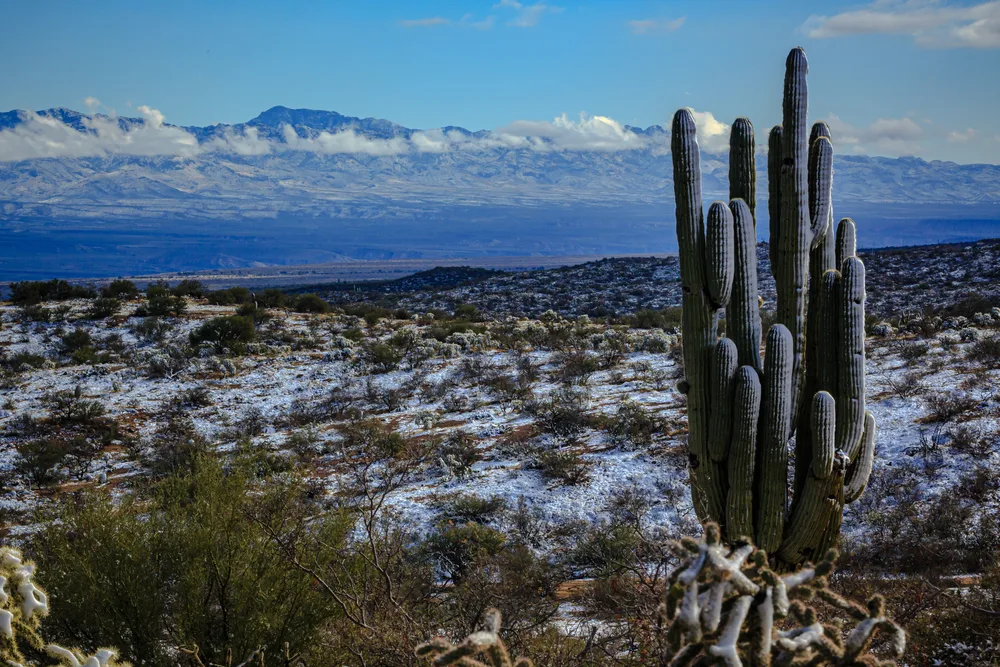
Pro-choice supporters rally for reproductive rights at the Texas Capitol on May 14, 2022 in Austin, Texas. On May 2, 2022 Politico published a leaked draft Supreme Court majority opinion in Dobbs v. Jackson Womens Health Organization that explicitly overturns Roe v. Wade, which would reverse constitutional protections for abortion across the nation. (Photo by Montinique Monroe/Getty Images)
There have been nearly 65,000 pregnancies caused by rape in states with abortion bans since the US Supreme Court overturned Roe v. Wade in 2022, according to a new study published in the Journal of the American of Medical Association.
There were 14 states included in this study: Alabama, Arkansas, Idaho, Indiana, Kentucky, Louisiana, Mississippi, Missouri, North Dakota, Oklahoma, South Dakota, Tennessee, Texas, and West Virginia. Texas is estimated to have the highest amount of rape-caused pregnancies at 26,313—more than four times greater than the second state on the list, Missouri.
Between July 1, 2022 and Jan. 1, 2024, researchers estimate that 519,981 rapes occurred in these states. Only about 9% of the pregnancies that resulted from these rapes occurred in states with bans that include exceptions for rape—which, even when they exist, can be extremely difficult to qualify for.
“In this cross-sectional study, thousands of girls and women in states that banned abortion experienced rape-related pregnancy, but few (if any) obtained in-state abortions legally, suggesting that rape exceptions fail to provide reasonable access to abortion for survivors,” the study stated.
Dr. Sami Heywood, an OB/GYN in Illinois and fellow with the advocacy group Physicians for Reproductive Health, told CNN that rape exceptions written into abortion bans “may appear to be a reasonable solution, but in practice, can create more trauma and danger for patients who have already experienced a traumatic event.”
“No other health care is reserved only for people who can prove a crime took place,” she said. ”That’s not an ethical way to practice medicine. It is cruel to force people who have already been victimized to jump through legal and logistical barriers that cause further harm.”
Heywood further noted that health care providers may not always ask how a person became pregnant, and patients may not always want to disclose the fact that they were raped. Rape victims may also take more time to realize that they are pregnant. This delay can limit the victim’s options, as medication abortion, for example, may only be used in the first 10 weeks of pregnancy. These factors also don’t take into account the fact that many pregnant people are being forced to travel to receive reproductive care in the wake of the Dobbs decision, which also takes time.
In Arizona, abortion is banned after 15 weeks of pregnancy, and the state’s Supreme Court is currently deciding whether or not to reinstate a total ban that was passed in 1864. Reproductive rights advocates are working to place an abortion rights measure on voters’ ballots this year, which would give Arizonans the chance to enshrine reproductive rights into the state constitution.
In order to arrive at their results, researchers first estimated the number of rapes that occurred in states with abortion bans, and the number that took place while those bans were in effect. These time periods varied state-to-state.
From there, researchers used Bureau of Justice Statistics data on criminal victimization and FBI Uniform Crime Reports to determine the number of vaginal rapes of women ages 15-45 that occurred in those 14 states while those abortion bans were in effect. That number was 520,000.
Researchers then calculated that 12.5% of those rapes would result in a pregnancy, based on Centers for Disease Control’s National Intimate Partner and Sexual Violence survey (which used special methods to accurately ascertain the number of reported and unreported rapes).
The study does note a conflict of interest with two of the six researchers: Samuel L. Dickman serves as the Medical Director of Planned Parenthood Montana, and is currently part of several lawsuits dealing with abortion access, and Kari White has in the past received compensation from groups that support abortion access.
Politics

Trump says he’s pro-worker. His record says otherwise.
During his time on the campaign trail, Donald Trump has sought to refashion his record and image as being a pro-worker candidate—one that wants to...

VIDEO: Hundreds show up in Scottsdale to support reproductive rights
@coppercourier Days after the Arizona Supreme Court ruled to enforce a long-dormant law that bans nearly all abortions, hundreds took part in a...
Local News

US court rejects a request by tribes to block $10B energy transmission project in Arizona
In Arizona, work was halted briefly in November amid pleas by tribes to review environmental approvals for the San Pedro Valley. ALBUQUERQUE, N.M....

What to know about Trump’s legal issues
Over the past year, former president Donald Trump has become the center of not one, not two, not three, but four criminal investigations, at both...





